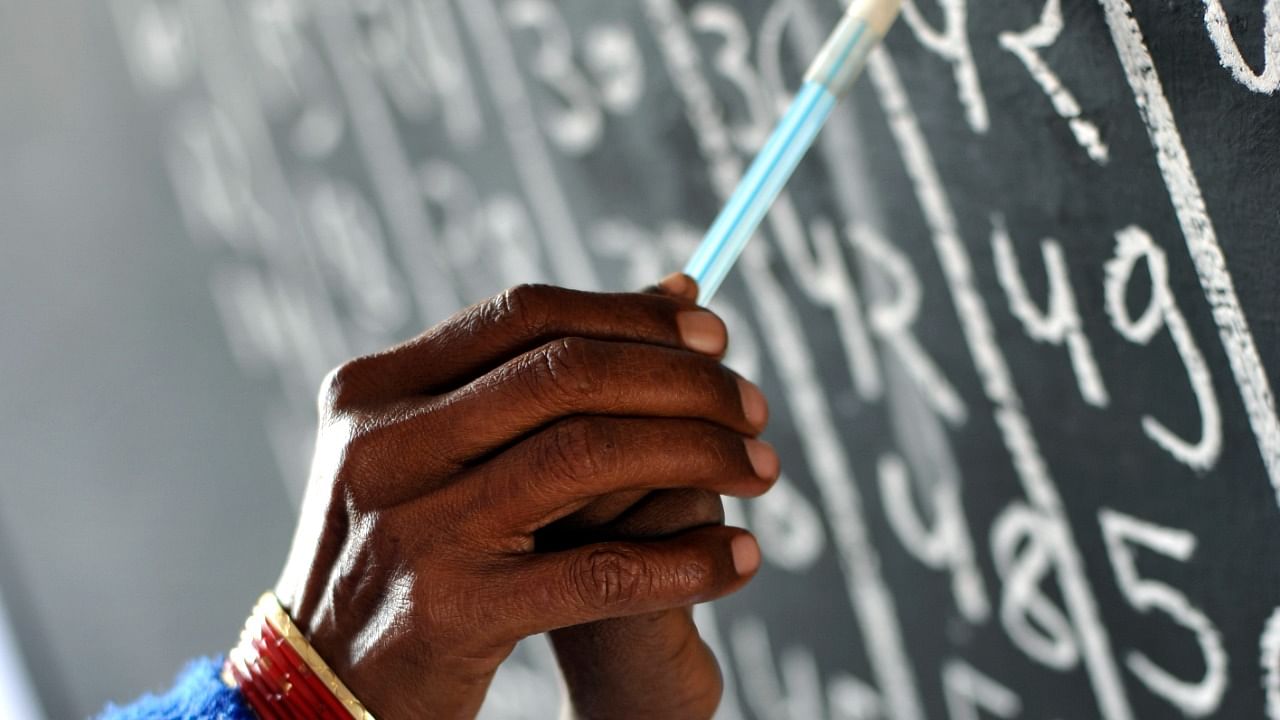
As is often stated, one should not allow a crisis to go to waste. The current pandemic which has affected children — rich or poor, rural or urban — is just one occasion to adapt out-of-the-box idea to impart “true education”. It is a well-known reality that our current education system has failed to ignite critical thinking or creativity in our students, teach values to make them socially responsible citizens, create curiosity to ask questions or learn about the world.
If the New Education Policy (NEP) is properly implemented, then there is hope that our children will have a chance to get true education. However, we need not wait for the implementation of NEP. Right now, during the current crisis itself, if we can implement Student Mentoring Programme (SMP), we can make a beginning. Under SMP, a mentor who is reasonably well-educated has a desire to interact with children to create curiosity in them by telling stories or answering their questions and can guide them to develop a proper value system, will spend an hour a week with a student.
SMP has similar features such as the one of Indian 'gurukula' where a teacher guides his disciples in acquiring life skills, or the advisory system of the US education system where each student has an advisor to guide students. The difference with SMP is that it is carried out on a digital platform using a smartphone while the other two are in person. During India’s freedom struggle, Mahatma Gandhi was promoting a programme called, “Each one, Teach One” to educate the illiterates. SMP is a replica of this except that the former uses information technology highway.
The usefulness and importance of the mentoring programme can be appreciated through the example of Indra Nooyi. She is a former chairman of PepsiCo who has consistently figured in the lists of the world’s most powerful women. Despite her busy schedule, she was mentoring five American Indian High School students recently. She has spent time with each of her mentees individually and collectively, with their parents (all virtually), taken walks with some of them, and has even invited their parents and mentees for a dinner.
Since both the authors of this article are associated with Pratham, an NGO with a mission to ensure all children are in school and learning well, we were familiar with the ground realities and also had easy access to children in villages. Our experience helped us to design and run a pilot project in three villages close to Mysuru.
Forty students from class 6 to 9 were shortlisted. Parents of the students were briefed about the programme and the value that the mentors could add to their child’s learning. There was spontaneous acceptance. Profile of the students such as the class they were studying, their interests, parent’s profession, level of education, phone numbers etc, was prepared to find a suitable mentor.
Two kinds of mentors were selected— about 30 teacher trainees from BGS College of Education, Mysuru, and 10 professionals with a different background like lawyers, academicians, retired school principals, teachers with several years of experience, engineers etc. Basic guidelines of engagement between mentors and mentees were also listed to ensure uniformity and best practices are followed. There was to be no physical contact between mentors and mentees, no offer of any financial assistance while mentors were told to avoid teaching lessons that were a part of the school curriculum. This was primarily to avoid any conflict in the methodologies of teaching followed in the schools.
Access to phones
Initial responses of mentees and mentors have been uniformly positive. There were some problems with children getting access to phones when their parents take the devices to work. These are not insurmountable problems. The attractiveness of SMP is its replicability, scalability and practically zero cost. However, no NGO, whether big, active and well-funded, has enough bandwidth to scale it to national or even state level. A state government can easily implement this programme and scale it up.
The state government can give wide publicity through TV, radio and newspapers on how all those educated can serve the society from the comforts of their house without any inconvenience. Periodically, they can publish stories of outstanding contribution of some mentors and also the improvement in mentees to give high visibility to the programme. As the programme expands, booklets and pamphlets can be prepared to serve as guides to mentors as well as mentees for them to make the best use of the programme.
The Ministry of Education can promote the idea of forming WhatsApp groups of say 20 to 30 mentors in some areas by developing a massive data bank of mentors and mentees. From time to time, prizes can be given to recognise outstanding contribution on the part of mentors and performance on the part of mentees to incentivise active participation. It goes without saying that there will be a need for the government to allocate some funds. Social departments of colleges and universities can be roped into promoting and monitoring this programme.
There are three critical factors for SMP to succeed. First is the recruitment of concerned and committed individuals. Second is the continuing interest on the part of schoolchildren and their parents. Finally, the competence of officials and college and university staff to monitor the programme and take corrective steps.
The potential of SMP to contribute to achieving NEP’s objectives is immense. But how we organise to tap into it depends on the capacity of the government departments to get the involvement of the intelligentsia. It is most apt to conclude by quoting Swami Vivekananda: “So long as the millions live in hunger and ignorance, I hold every man a traitor who, having been educated at their expense, pays not the least heed to them.” Let us hope most will in this nation-building project.
(Shenoy is an advisor and Ranjan is a trustee of Pratham, Mysuru)